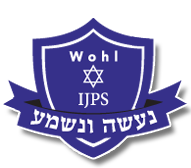ENGLISH WRITING at WIJPS
Intent
Writing is a key skill that is used in all areas of the curriculum and the breadth of our curriculum ensures that pupils make links across all areas and subjects, writing a range of genres using subject-specific vocabulary to enhance their writing and engage their reader. Through cross-curricular writing, the skills taught in English lessons are transferred into other subjects, showing consolidation of skills and a deeper understanding of how and when to use specific grammar, punctuation and grammar objectives.
Writing is taught in daily English lessons through units that are planned around high-quality texts. We teach English as whole class lessons, so that all children have access to the age-related skills and knowledge contained in the National Curriculum. Through differentiated quality first teaching, all pupils receive the support they need in order to make good progress, to be confident and to be able to enjoy writing. Children who are not reaching age related expectations are supported both in class and in additional group or individual sessions. Children are given word mats with high frequency spellings and some of the key vocabulary needed for the piece of writing. Writing frames and prompts help structure the text and all pupils use the English working wall for continual support and guidance. Those working above age related expectations are given opportunities to extend their writing in a variety of ways, such as being given a choice of tasks in order to write effectively for a range of audiences and purposes, having a deeper understanding of the impact their writing has on the reader, selecting the appropriate form and drawing independently on what they have read as models for their own writing; showing greater control in their writing, exercising an assured and conscious control over levels of formality, particularly through manipulating grammar and vocabulary to achieve this; and to use the range of punctuation taught at Key Stage Two correctly and, when necessary, to use such punctuation precisely to enhance meaning and avoid ambiguity.
Children are given adequate time to plan and edit their work. Teachers use high quality texts, full of rich vocabulary, to immerse the children in their learning and their writing builds on the knowledge that they have of the world around them. Teachers plan real life reasons for writing; tasks are meaningful and the children write for purpose, carefully considering the audience of and the purpose for their writing. Grammar is taught through the language used by the author in the class text, as well as in separate grammar lessons. The separate grammar lessons allow pupils to fully embed the skills needed to write at the expected standards, and progression of the fundamental skills builds as each year progresses. When editing their work, children use editing stations to refine their grammar and punctuation, honing the skills learnt in their grammar lessons.
Class teachers model high quality writing, editing and proofreading, and use whole class writing to support all pupils. Before pencils or pens touch the paper, rich class discussions about the text and the purpose for writing ensures that all children are ready to write. Teachers recognise that good writing stems from reading and they place a high value on books and reading, regularly demonstrating the link between reading and writing. Children working above age-related expectations are able to draw independently on their own reading as a model for their writing.
The importance of good quality writing is not confined to English lessons. Knowledge organisers, used in history, geography and science lessons, contain the key vocabulary needed in each topic. This is crucial for children; it ensure they use the correct terms in their writing, allowing them to express themselves more precisely. Children are given purposeful writing tasks which relate to the topics they are learning and these subjects often allow children to write in a more formal, informative tone.
Writing is celebrated throughout the school at WJIPS. We have whole-school writing events, such as National Poetry Day, the BBC 500 Words Competition and other class-specific events. We have displays celebrating writing in all subjects and children are keen to share their writing with their peers and teachers.


